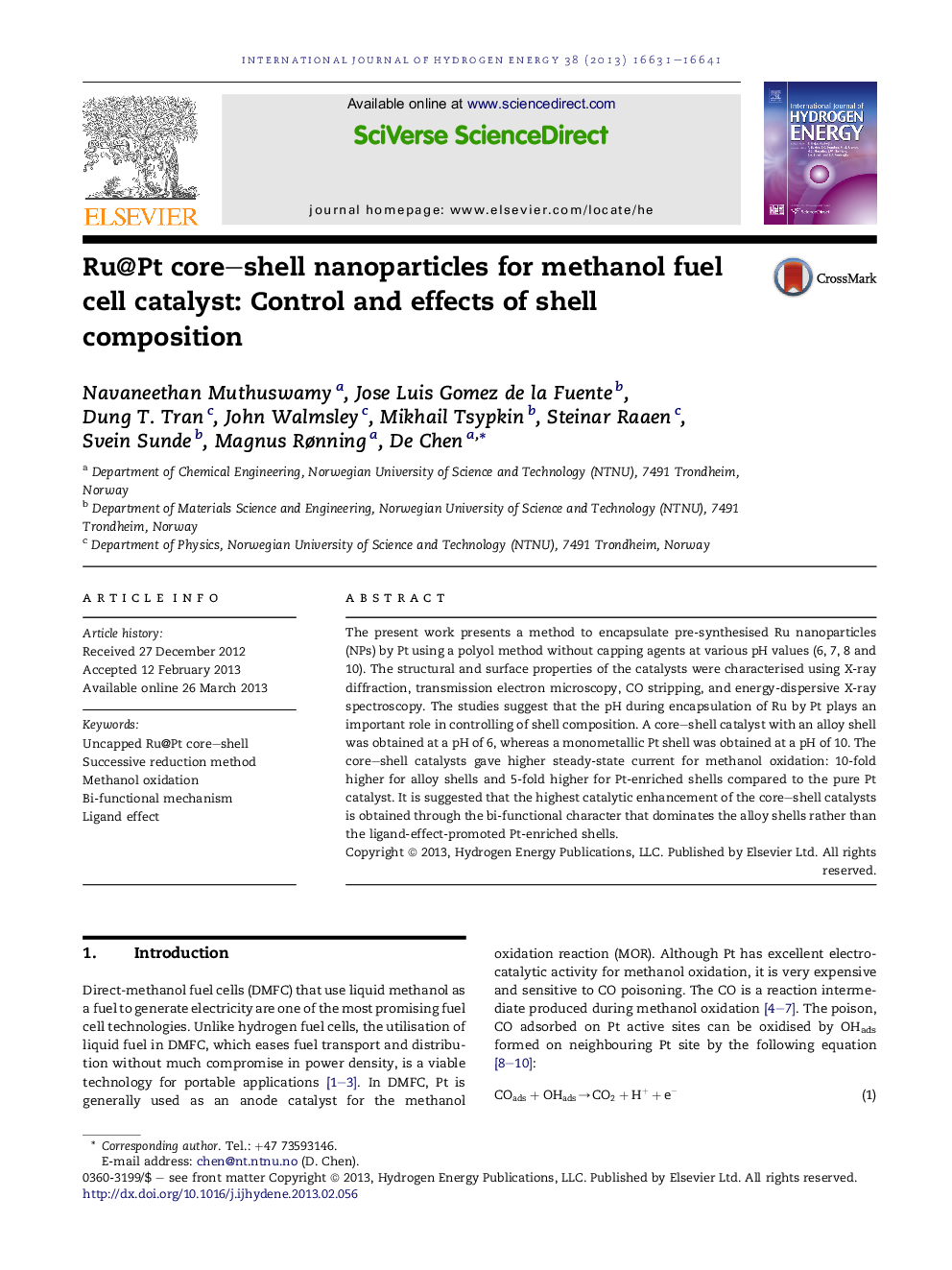| کد مقاله | کد نشریه | سال انتشار | مقاله انگلیسی | نسخه تمام متن |
|---|---|---|---|---|
| 1274231 | 1497509 | 2013 | 11 صفحه PDF | دانلود رایگان |

The present work presents a method to encapsulate pre-synthesised Ru nanoparticles (NPs) by Pt using a polyol method without capping agents at various pH values (6, 7, 8 and 10). The structural and surface properties of the catalysts were characterised using X-ray diffraction, transmission electron microscopy, CO stripping, and energy-dispersive X-ray spectroscopy. The studies suggest that the pH during encapsulation of Ru by Pt plays an important role in controlling of shell composition. A core–shell catalyst with an alloy shell was obtained at a pH of 6, whereas a monometallic Pt shell was obtained at a pH of 10. The core–shell catalysts gave higher steady-state current for methanol oxidation: 10-fold higher for alloy shells and 5-fold higher for Pt-enriched shells compared to the pure Pt catalyst. It is suggested that the highest catalytic enhancement of the core–shell catalysts is obtained through the bi-functional character that dominates the alloy shells rather than the ligand-effect-promoted Pt-enriched shells.
Figure optionsDownload as PowerPoint slideHighlights
► Ru@Pt NPs are highly active for methanol fuel cell.
► pH during Pt deposition is crucial for controlling shell composition.
► Shell composition determines the activity.
► Alloying of Pt with Ru in shell increases activity.
Journal: International Journal of Hydrogen Energy - Volume 38, Issue 36, 13 December 2013, Pages 16631–16641